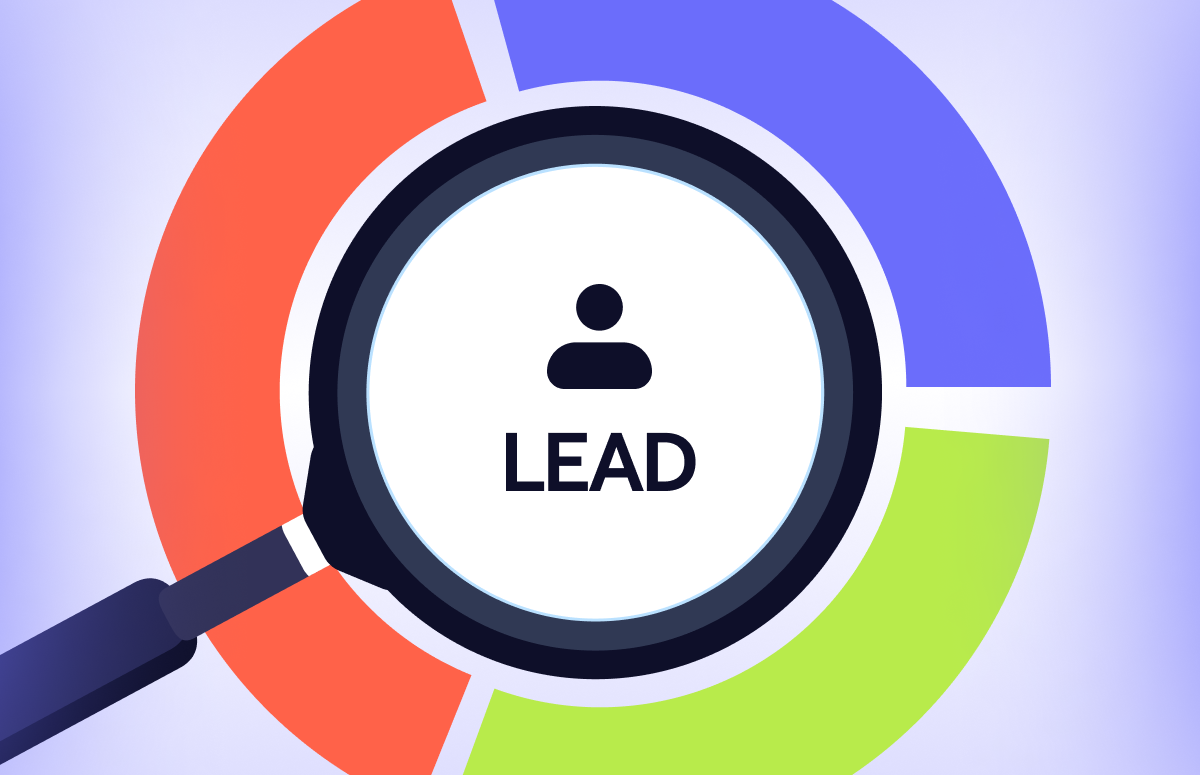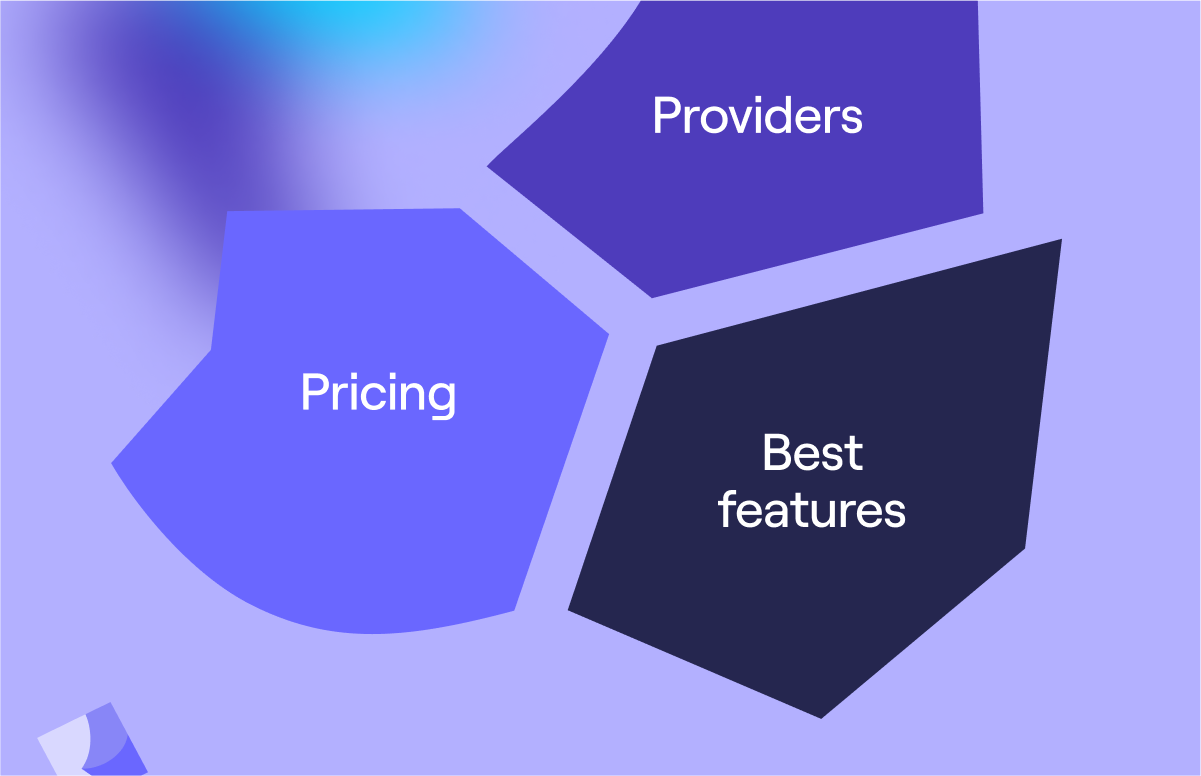Generative AI for Sales: Ultimate Guide for Managers
AI for sales FAQs:
AI is no longer a futuristic nice-to-have - it’s your sales team’s new secret weapon.
In today’s B2B industry, buyers expect better customer experiences, and reps are under pressure to deliver. Using AI in sales gives teams the edge they need to prospect smarter, personalise outreach at scale, and close deals faster.
But AI isn’t here to replace your reps; it’s here to amplify them.
From auto-generating call prep to surfacing high-intent accounts and writing prospecting emails, this guide will walk you through the smartest ways to use AI in your sales strategies - and where it’s already driving results for top-performing teams.
Let’s dive in 👇
What is generative AI for sales?
Generative AI for sales is a type of artificial intelligence that creates content or delivers information to support and accelerate the sales process.
Instead of sales professionals manually writing emails, researching accounts, or building call scripts, generative AI does it for them.
Real-world example: Cognism’s Cortex AI
Reps using Cognism can generate a full company summary - including business model, strategy, revenue drivers, and more - with no prompt writing required.
Pair that with contact data, and your team is ready to prospect with relevance and speed.
See how Cognism’s AI tool works - take an interactive tour 👇
How does generative AI in sales work?
Here’s a clear breakdown:
It’s trained on massive datasets
Generative AI models - like ChatGPT or those built into tools like Cognism’s Cortex AI - are trained on vast amounts of text: websites, email communications, call scripts, CRM data, product docs, and more.
This is all part of machine learning: the AI copies and is able to generate human-like language that’s relevant, persuasive, and on-brand.
It uses context to personalise output
When a sales rep enters a content creation prompt, the AI pulls in context - like the prospect’s job title, company size, industry, or recent activity - and uses it to tailor the message.
The more B2B data available, the more relevant and specific the output.
It follows pre-defined templates or prompts
Most sales-focused generative AI doesn’t start from scratch.
It’s guided by pre-set prompts or templates built by your sales or marketing team. This ensures the output reflects your tone, ICP messaging, and value prop.
Example:
Cognism’s Cortex AI uses pre-built, no-prompt-needed workflows to surface company summaries, call openers, and strategic insights.
Your reps don’t need to think about what to ask - it’s all built-in.
It generates sales content instantly
Once triggered, the AI generates content in seconds, whether it’s a cold email, LinkedIn message, talk track, or research summary.
Your reps can review, tweak if needed using an accurate AI checker, and send, cutting hours of manual effort.
It gets smarter over time
Some platforms improve with usage.
Based on rep edits, response rates, or performance data, generative AI can refine future outputs, helping teams consistently send higher-converting messaging.
What are the top ways that sales teams use AI?
Let’s be clear:
AI isn’t replacing human salespeople; it’s replacing manual effort.
When used correctly, AI accelerates prospecting, enhances personalisation, and turns every rep into a top performer.
Here are the top ways that sales managers use generative AI 👇
1. Target account and lead generation
AI tools like Cognism’s Cortex AI eliminate the need for tab-hopping or Google searches.
With a single click, reps get:
- AI-generated company summaries.
- ICP fit checks.
- Revenue drivers and key competitors.
This means faster call prep and more relevant conversations from the start.
2. Lead scoring and prioritisation
AI algorithms analyse historical deals and customer data, including firmographics and buying behaviour, to:
- Score leads based on likelihood to convert.
- Automatically surface high-intent accounts.
- Prioritise outreach for reps based on real-time signals.
3. Writing sales outreach
Tools like ChatGPT (or embedded assistants in CRMs) can write tailored messaging in seconds, reducing rep admin and increasing reply rates.
Reps use generative AI to produce:
- Personalised cold emails.
- LinkedIn messages.
- Cold call scripts and ice-breakers.
4. Conversational intelligence and call analysis
AI-powered tools (e.g. Gong, Chorus) automatically:
- Transcribe sales calls.
- Identify objection patterns.
- Highlight talk ratios, competitor mentions, and buying signals.
Sales leaders use this data to coach reps more effectively and scale winning behaviours.
5. Sales forecasting and pipeline insights
AI enhances forecasting accuracy by:
- Detecting sales pipeline risks earlier.
- Predicting deal slippage or close likelihood.
- Providing data-driven revenue projections.
This helps sales managers make better decisions and allocate resources proactively.
6. Trigger-based outreach
AI helps reps act at the right time by flagging:
- Job changes.
- Company funding rounds.
- Tech stack shifts or buying signals.
Combined with intent data, it ensures reps contact prospects when they’re most likely to engage.
7. CRM hygiene and data enrichment
AI ensures cleaner CRMs by:
- Auto-updating contact data.
- Detecting duplicates.
- Enriching records with firmographics and social links.
That means less admin for reps and more reliable data for your sales funnel.
What are the benefits of AI in sales?
You know what the pressure’s like - having to hit tougher targets with fewer resources.
Here are the key ways that AI benefits sales pros 👇
Increased productivity
AI automates time-consuming tasks (like customer research, data entry, lead enrichment, and cold outreach writing) so reps can spend more time selling and less time prepping.
Example:
Instead of Googling company info, reps use Cognism’s Cortex AI to get instant company summaries, competitor insights, and call openers in one click.
Smarter lead prioritisation
Generative AI analyses intent signals and past customer engagement, and identifies which leads are most likely to convert.
The benefit is that reps don’t waste time on low-fit prospects.
Example:
AI-driven lead scoring surfaces high-intent accounts based on job changes, funding events, or website behaviour.
Better personalisation at scale
With generative AI, reps can quickly create hyper-relevant emails, LinkedIn messages, and sales scripts, without starting from scratch.
Example:
AI writes cold emails that reference the prospect’s recent company news or tech stack, boosting open and reply rates.
Improved forecasting and pipeline accuracy
AI detects risk signals in deals (e.g. low activity, missing decision-makers) and improves forecasting models by analysing patterns across your CRM, email, and call data.
Example:
Tools like Clari or Gong warn you when deals are likely to slip, weeks before the quarter closes.
Stronger coaching and sales enablement materials
AI analyses sales calls to identify patterns, objections, and talk tracks that work.
This helps managers with sales training - they can coach more effectively and scale what top performers do.
Example:
AI flags that winning reps ask 30% more discovery questions than underperformers, helping teams adjust tactics.
Faster ramp-up for new reps
With AI providing call scripts, company research, and instant context, new hires can get up to speed faster, reducing onboarding time and accelerating productivity.
Reduced admin and manual work
AI takes care of CRM hygiene, contact enrichment, meeting summaries, and note-taking.
It helps in reducing burnout and improving data accuracy.
Example:
Tools like Cognism Enrich update and verify contact records automatically, ensuring reps always work with clean data.
Deeper customer insights
AI connects data points across channels, like intent, content engagement, and customer interactions.
It helps reps understand what their buyers really care about.
What are the different types of AI in sales?
Each type of AI plays a different role in the sales process, from sourcing and scoring leads to crafting outreach and improving pipeline visibility.
The most successful sales teams combine multiple types to automate admin, boost productivity, and drive consistent revenue.
Here’s a breakdown of the main types of AI used in sales, each with real-world examples to show how they work in practice:
Generative AI
What it does:
Creates sales and marketing content - such as emails, LinkedIn messages, call scripts, or research summaries - based on input prompts or contextual data.
Real-world examples:
- Cognism’s Cortex AI auto-generates company summaries, icebreakers, and competitor insights in one click - no prompt writing is needed.
- ChatGPT / Gemini / Claude craft cold emails, sales messages, or call scripts tailored to specific industries or personas.
- Lavender helps reps write and optimise cold outreach emails using real-time AI feedback.
Predictive AI
What it does:
Uses historical data to forecast outcomes like conversion rate likelihood, deal closure probability, or churn risk.
Real-world examples:
- Salesforce Einstein scores leads and opportunities based on past engagement, helping reps prioritise the most promising prospects.
- HubSpot Predictive Lead Scoring uses AI models to identify which contacts are most likely to become customers.
- 6sense predicts where buyers are in the journey and surfaces accounts that are likely to convert.
Conversational AI
What it does:
Understands and responds to human language in sales conversations, typically in chatbots or call intelligence platforms.
Real-world examples:
- Gong and Chorus transcribe and analyse sales calls, pulling out key moments, objections, and buying signals to help reps improve performance.
- Drift and Qualified use conversational AI chatbots to qualify leads and book meetings directly from the website in real-time.
- ZoomInfo Chat uses AI to engage with inbound site visitors and direct them to relevant reps or content.
Intent and signal intelligence AI
What it does:
Detects buying signals and intent data (like researching competitors or visiting pricing pages) so reps can engage at the right moment.
Real-world examples:
- Cognism’s Sales Companion shows buying signals like job changes, tech stack adoption, and recent funding rounds, alongside accurate contact data.
- Bombora and G2 Buyer Intent identify companies actively researching solutions in your category.
- Leadfeeder / Albacross show which companies are visiting your website anonymously, so your team can follow up with targeted outreach.
Data cleansing and enrichment AI
What it does:
Enhances CRM database quality by filling in gaps, correcting errors, and keeping contact and company information up-to-date.
Real-world examples:
- Cognism Enrich updates and enriches lead and account records with firmographics, direct dials, and compliance-checked contact data.
- Breeze Intelligence (formerly Clearbit) auto-populates lead forms and CRM fields with verified company and contact info in real-time.
- ZoomInfo syncs up-to-date contact data with CRMs to reduce bounce rates and improve targeting.
Sales forecasts and pipeline health AI
What it does:
Analyses pipeline trends and deal behaviour to improve forecasting accuracy and identify potential deal risks.
Real-world examples:
- Clari uses AI to forecast revenue and spot pipeline risks by analysing CRM updates, call transcripts, and rep activity.
- BoostUp.ai provides AI-powered forecasting insights based on multichannel rep engagement and deal progression.
- People.ai analyses rep behaviour to flag underperforming accounts or missing decision-makers in deals.
What are the top AI tools for sales?
Here’s a list of top tools for B2B sales teams. Each tool solves a specific part of the sales workflow, from prospecting to closing 👇
1. Cognism
Best for: Finding and connecting with high-quality decision-makers.
What it does:
Cognism is a sales intelligence platform built for revenue teams.
It combines globally compliant contact data, Diamond Data® direct dials, and AI-powered tools (like Cortex AI) to help sales reps find, research, and reach decision-makers faster.
Top features:
- AI-powered company insights (Cortex AI).
- Phone-verified direct dials (Diamond Data®).
- Intent data, job change signals and buying triggers.
- A browser extension that works across LinkedIn and company sites.
Why sales teams love it:

CEO @Lead Forensics

2. Salesforce
Best for: CRM and pipeline management.
What it does:
Salesforce is the go-to CRM for managing contacts, tracking opportunities, and forecasting pipeline. It integrates with most sales tools and is highly customisable.
Top features:
- Lead and opportunity tracking.
- Workflow automation and approvals.
- AI insights via Salesforce Einstein.
⚠️ See how Cognism integrates with Salesforce.
3. Salesloft
Best for: Prospect engagement and sales agent workflows.
What it does:
Salesloft helps reps structure outbound workflows, automate follow-ups, and log activity to CRMs.
Top features:
- Cadence builder.
- Conversation intelligence.
- CRM and calendar integrations.
⚠️ See how Cognism integrates with Salesloft.
4. ZoomInfo
Best for: Contact data and firmographic enrichment.
What it does:
ZoomInfo provides a broad database of B2B contact and company information for sales and marketing teams.
Top features:
- Contact and company search.
- Buyer intent and technographics.
- Data enrichment for CRMs.
⚠️ See how Cognism compares to ZoomInfo.
5. LinkedIn Sales Navigator
Best for: Social media selling and account-based research.
What it does:
Sales Navigator helps reps identify and connect with prospects based on job titles, industries, activity, and intent signals across LinkedIn.
Top features:
- Advanced lead and account filters.
- CRM integrations.
- InMail and activity tracking.
⚠️ See how Cognism compares to LinkedIn Sales Nav.
6. 6sense
Best for: Intent data and account-based marketing.
What it does:
6sense uses AI and intent signals to identify in-market accounts and predict where they are in the buying journey.
Top features:
- Buyer intent and predictive scoring.
- Website visitor tracking.
- Marketing campaign orchestration.
⚠️ See how Cognism compares to 6sense.
7. Outreach
Best for: Sales engagement and outbound email sequences.
What it does:
Outreach helps reps automate, track, and personalise their email, call, and LinkedIn sequences. It also provides managers with engagement data and rep performance metrics.
Top features:
- Multi-touch sequencing.
- A/B testing and analytics.
- Conversation intelligence (Outreach Kaia).
8. Gong
Best for: Call recording, coaching, and pipeline insights.
What it does:
Gong records and analyses sales calls and meetings. It uses AI to surface deal risks, coaching opportunities, and competitor mentions.
Top features:
- Conversation intelligence.
- Deal and pipeline health tracking.
- Coaching dashboards.
9. Clari
Best for: Revenue forecasting and pipeline visibility.
What it does:
Clari gives RevOps and sales leaders accurate forecasts by analysing CRM updates, activity data, and rep behaviour.
Top features:
- Deal inspection and health scoring.
- Forecasting by team, product, or region.
- AI-driven risk alerts.
10. ChatGPT
Best for: Writing cold emails, call scripts, and research summaries.
What it does:
ChatGPT is the famous generative AI tool. Reps use it to craft outreach, summarise research, and brainstorm messaging ideas.
Top features:
- Prompt-based content generation.
- Personalisation at scale.
- Integration into workflows (via browser extensions or plugins).
⚠️ See Cognism’s guide on using ChatGPT for sales!
What is the future of AI for sales?
The future of AI for sales isn’t just automation, it’s augmentation.
AI will increasingly act as a strategic co-pilot, helping sales teams work smarter, move faster, and close more deals with less friction.
Here’s what’s next:
Sales research will be instant and automatic
Pretty soon, reps won’t need to write prompts anymore.
AI will proactively surface real-time account insights, competitive intel, and talking points, right inside their workflows.
Future vision:
Tools like Cognism’s Cortex AI will evolve into virtual sales assistants, delivering everything a rep needs before a call - ICP fit, strategy summaries, buying triggers - without them lifting a finger.
Hyper-personalisation at scale
AI will enable 1:1 outreach at scale.
Think messaging that feels completely human, but is generated, tested, and refined by AI based on persona, context, behaviour, and branding.
Predictive AI will guide every sales decision
No more gut feel! AI will tell reps:
- Which accounts to prioritise.
- When to reach out.
- What channels to use.
- And what messages are most likely to convert.
Forecasting will also get sharper, with AI flagging deals at risk before reps even know it.
Every conversation will be coached in real time
AI won’t just record calls, it’ll improve them live!
Expect real-time prompts during product discovery, nudges to ask better questions, and instant objection handling suggestions.
Admin will disappear
CRM updates, lead enrichment, activity logging, and note taking?
AI will handle it all, freeing reps to sell!
Your CRM system will finally be accurate, complete, and up-to-date.
AI will align sales, marketing and RevOps
Unified AI systems will connect marketing signals, sales activity, and pipeline health to guide strategic plays across teams.
Examples:
- Marketing sees which campaigns generated high-converting AI-scored leads.
- RevOps adjusts targeting based on AI data analysis.
- Sales gets dynamic account lists based on real-time buying intent.
But AI will still need one important thing: Trustworthy data
AI is only as powerful as the data that feeds it.
Platforms like Cognism, with verified, compliant, high-quality data, will become foundational. Because poor data = poor AI selling.
Test Cognism’s data today with a free sample 👇
![Lead Generation Companies & Services [+How to Choose]](https://www.cognism.com/hubfs/Updated-resource-card-2.png)

